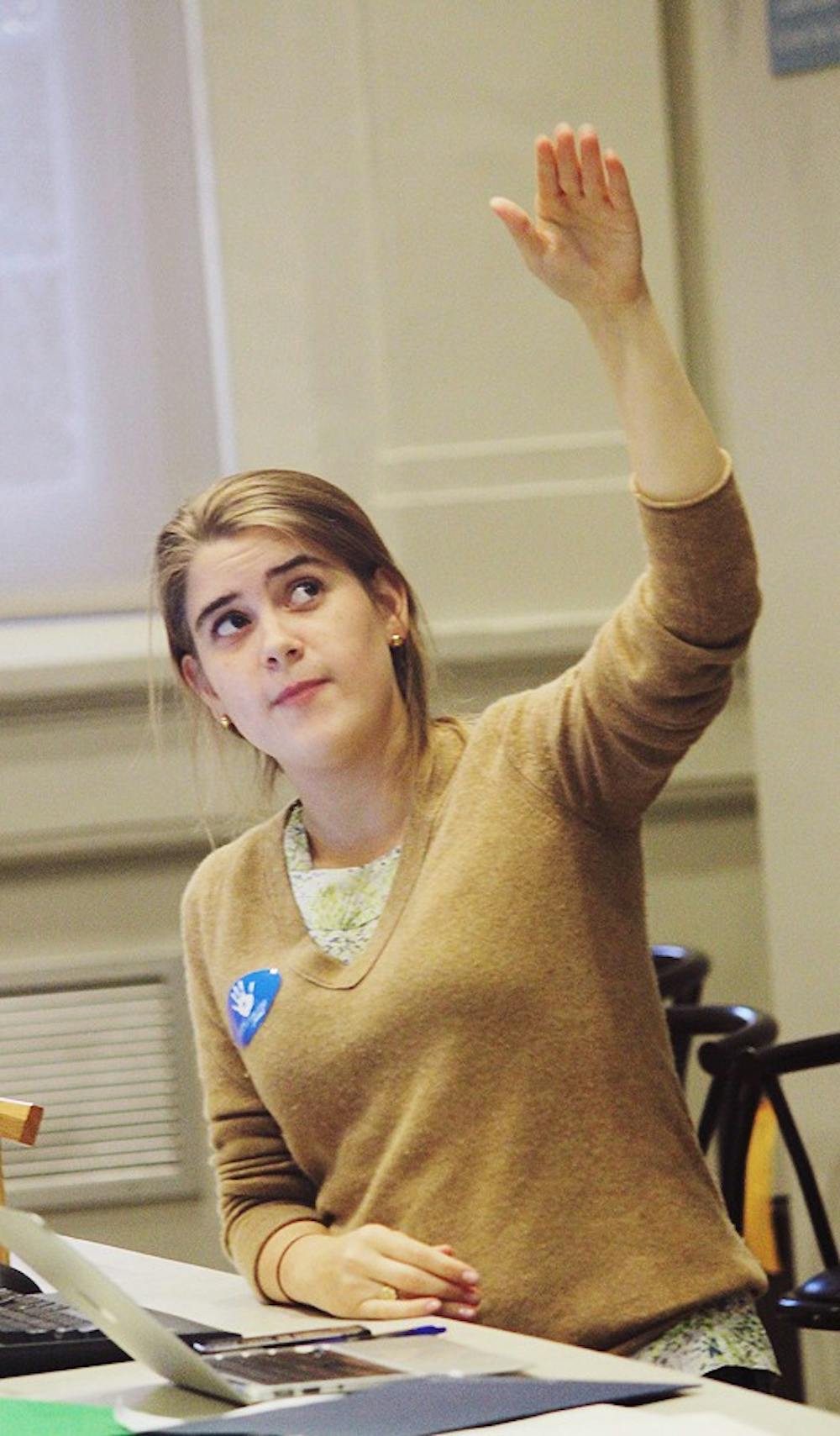Attendance dwindled at Student Body President Mary Cooper’s third day of tuition forums.
On Wednesday, a total of 13 students attended two separate forums where Cooper solicited opinion on tuition increase proposals.
In spite of the small turnout, Cooper said she was encouraged by student response.
“The quality of questions has been outstanding,” Cooper said. “They’re innovative ideas, they’re thoughtful, concerning questions,” she said.
Questions and answers
STUDENT: How are other public schools paying our professors more to go there? How are they doing it and we can’t?
COOPER: At other universities, tuition is a larger percentage of their budget, so they charge their students more. If you think about UVa. or Michigan or California, they’re kind of going through what we’re currently going through with our state legislature.
Basically, we are a state-supported university at the moment. Those schools are now describing themselves as state-assisted, so a much smaller portion of their total budget and revenue coming in is reliant on the state.
STUDENT: I think something that might be missing here is what the effects of a tuition increase are on the student body, and looking at universities that are peer institutions in terms of being public universities that have raised tuition. I think it’s really important to take into account that diversity in socioeconomic status and racial diversity has decreased in these universities because of tuition increases.
COOPER: I would love to hear the exact numbers on how the diversity has changed. I’ve been working with (interim director of the Office of Diversity and Multicultural Affairs Terri Houston) and Provost (Bruce) Carney to answer a lot of these questions because it is important.




